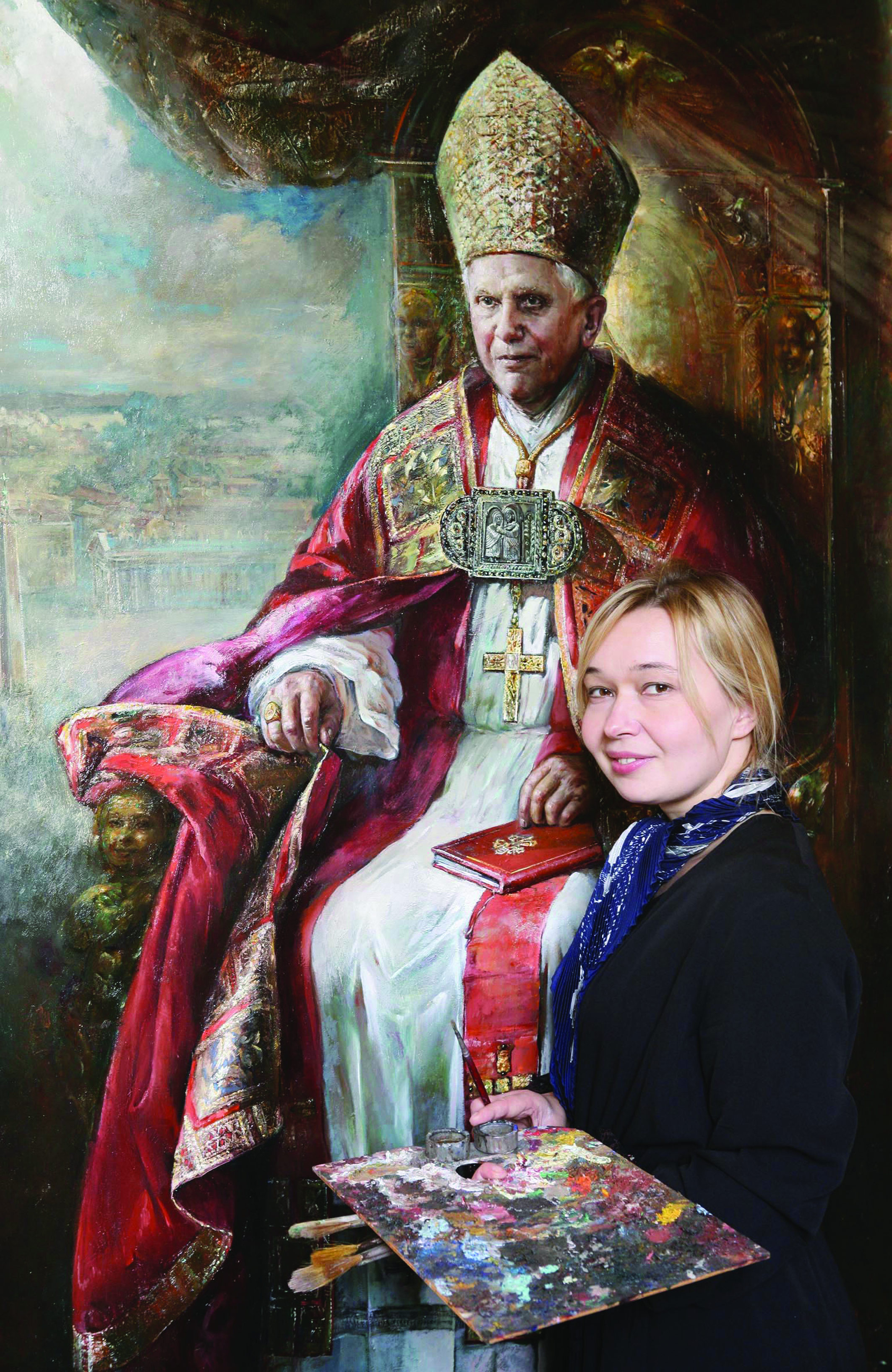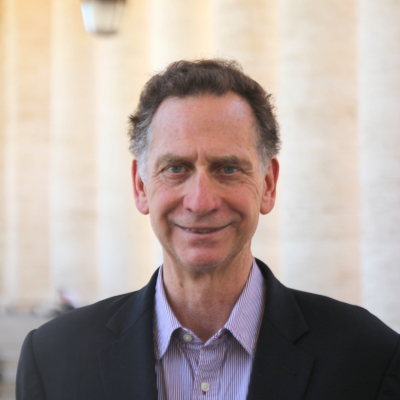Pope Francis has once again mentioned the apocalyptic work by Monsignor Robert Hugh Benson, The Lord of the World (1907). The book describes the coming of the Antichrist. Does Francis believe the Antichrist is… about to arrive?
Pope Francis told the journalists traveling with him on his flight back from Asia on January 19 that there is one book they should read to better understand the dangers facing the Church and humanity today. He said it is his favorite book, entitled The Lord of the World, by Monsignor Robert Hugh Benson (London, 1907). And note well: Francis has recommended this same book before, and it has been cited on occasion also by Pope Benedict XVI, both as Cardinal Ratzinger and as Pope. When two Popes both advise reading the same book to gain deeper perspective and understanding on the perils of our time, it seems clear that there must be some teaching or insight in that book that has deeply impressed both Popes, a teaching or insight that all Catholics ought to know about and reflect upon.
Benson’s novel, written in the early 20th century, is set in the late 20th century — a time already in the past for us today. It describes the coming into the world of a political leader who presents himself in many ways as a good and decent person, except for one key thing: he rejects Christ, and asks Christians to reject Christ, for the sake of world peace. And, in the end, many Christians do… What we have, in essence, then, in this book, is a warning from more than a century ago that when the Antichrist comes, he will come not with horns on his head, but with smooth and persuasive arguments that set aside the traditional Christian hope, for a “new hope,” a “human hope.”
Christian orthodoxy centers everything on Jesus Christ. I repeat: Christian orthodoxy is entirely “Christo-centric,” centered on Christ, the center of time, of human history, of reality itself. By making Christ the center, orthodox Christian faith, hope, and love “relevatize,” make less central, more peripheral, all of our human faith, hope and love, allowing us to focus intently upon and arrive at the ultimate meaning of our lives, which is Christ himself, and in Christ, to be “saved” from sin and death, to be “made holy,” and, ultimately (as scandalous as it may sound), to be “divinized” — made able to share in the very life of the eternal, triune God.
The vision of Benson’s novel is of a “humanistic” temptation which leads people first to forget Christ, then to reject him. And that is why this “humanistic” tempter of the novel is called the Antichrist.
This vision has, arguably, made its way, to some degree, into the magisterium of the Popes, the official teaching authority of the Church. The American Jesuit scholar Father James Schall, after reading this papally-suggested novel, wrote in Crisis in 2009 that “this novel is remarkably similar in theme to Pope Benedict XVI’s encyclical Spe Salvi, one of the very great encyclicals. That is, the novel is about the futility of a this-worldly utopia with the instruments of death (abortion, euthanasia) and endless life (prolongation of life, cloning) that are designed to make it come about. Indeed, in a lecture he gave at the Catholic University in Milan on February 6, 1992, Josef Ratzinger cited The Lord of the World and the deadly Universalist, inner-world atmosphere it depicted.”
So, not only did Pope Francis on January 19 on the plane suggest reading this book to the entire press corps covering the Vatican (and we reprint that entire interview on pp. 36-41 of this issue, so you can find there exactly what the Pope says about this book), but it was also cited approvingly by then-Cardinal Ratzinger in 1992, and then, seemingly, as Schall argues, when Pope Benedict wrote his encyclical on hope, he drew on the book’s insight.
As Schall puts it: “The anti-Christ figure in The Lord of the World becomes the ‘Man-God,’ the ‘Lord of the World,’ precisely by promising universal brotherhood, peace, and love, but no transcendence.”
The hero of the book is an English priest, Percy Franklin, who watches with increasing concern as Julian Felsenburgh, an American senator from Vermont, appears on the world scene, a lone figure promising the world goodness if it but follow him. Felsenburgh becomes the president of Europe, then of the world, by popular acclaim. The only group who in any sense oppose him are a few loyal Catholics.
The English priest is eventually called to Rome by the Pope, John XXIV, to brief him on the rise of Felsenburgh.
All that had gone before, Percy tells the aging Pope, pointed to what had now actually taken place — namely, the reconciliation of the world on a basis other than that of Divine Truth. It was the intention of God and of His Vicars to reconcile all men in Christ Jesus; but the corner-stone had once more been rejected, and instead of the chaos that the pious had prophesied, there was coming into existence a unity [editor’s note: a “new world order”] unlike anything known in history. This was the more deadly from the fact that it contained so many elements of indubitable good. War, apparently, was now extinct, and it was not Christianity that had done it; union was now seen to be better than disunion, and the lesson had been learned apart from the Church. In fact, natural virtues had suddenly waxed luxuriant, and supernatural virtues were despised. Friendliness took the place of charity, contentment the place of hope, and knowledge the place of faith…
Persecution, he said, was coming. There had been a riot or two already. But persecution was not to be feared. It would no doubt cause apostasies, as it had always done, but these were deplorable only on account of the individual apostates…
But what was chiefly to be feared was the positive influence of Humanitarianism: it was coming, like the kingdom of God, with power; it was crushing the imaginative and the romantic, it was assuming rather than asserting its own truth…
The soul “naturally Christian” seemed to be becoming “the soul naturally infidel”… Finally, he expected, Humanitarianism would presently put on the dress of liturgy and sacrifice, and when that was done, the Church’s cause, unless God intervened, would be over.
Percy sits back, trembling.
“Yes, my son. And what do you think should be done?” the Pope says. Percy flings out his hands, and says:
“Holy Father — the Mass, prayer, the rosary. These first and last. The world denies their power: it is on their power that Christians must throw all their weight. All things in Jesus Christ — in Jesus Christ, first and last. Nothing else can avail.”





Facebook Comments